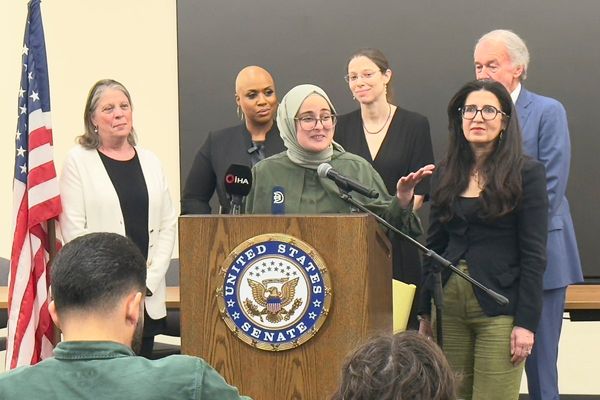
The Albanese government’s aviation green paper, released this morning, flags significant competition and consumer issues in the sector but offers no real solutions.
The document is intended as a discussion paper to inform the preparation of a white paper that will set aviation policy in coming years, but it has been overtaken by the firestorm over Qantas’ misconduct and the government’s unexplained refusal to allow greater competition from Qatar Airways.
The paper recognises the poor state of competition in the sector. The “domestic aviation sector is highly concentrated, with few market participants”. It notes that with “airlines no longer competing ‘head to head’ and focussing on market niches, the Australian government recognises a reduction in competitive tension could adversely impact consumers and businesses that rely on aviation”.
Moreover, “there is clear evidence airlines and airports are not delivering the services consumers expect”. There has been “a sharp rise in consumer complaints about airlines. Australians are concerned about increased flight cancellations and delays, which remain above long-term trends. Stakeholders have also raised concerns about the terms and conditions for refunds and travel credits for flights cancelled during the COVID-19 pandemic”.
Nothing surprising there. But what is the government thinking of doing about it? What solutions does it want to comment on? Well, not much — certainly not allowing other airlines in to compete with Qantas via so-called “cabotage”, where foreign airlines can carry passengers between Australian stops as part of an international service, or for purely domestic services.
“Further liberalising cabotage arrangements raises a range of difficulties related to the high degree of reliance on foreign regulators and regulatory frameworks to achieve policy outcomes,” the paper says. Also, it would allow “foreign airlines to import their lower cost base (including foreign wages and conditions), raising a range of issues under the fair work framework”.
Instead, the government will stick with a “case-by-case” approach to cabotage, which means essentially no cabotage outside the existing deal with New Zealand, which Air New Zealand refuses to use out of fear Qantas will go after it. But the government does propose to formalise the basis on which it will always say no via “a decision-making framework and guide for short-term cabotage dispensations”.
The paper also wants stakeholders to advise on what data the government might collect on aviation competition, and whether it should have a Productivity Commission inquiry into regional aviation. In other words, it will do precisely nothing about increasing competition.
How about consumers? Surely the government, recognising the big decline in community satisfaction with airlines, will empower the Australian Competition and Consumer Commission (ACCC) and overhaul complaints handling by the sector? The paper acknowledges that the current, industry-funded Airline Consumer Advocate (ACA) is a joke, as it demands that “the passenger must have first sought to resolve the dispute with the airline directly, and have also sought the airline’s review of its initial decision. The ACA can only hear complaints relating to participating airlines, and cannot issue binding decisions that affect the participating airline’s response to complaints, including compelling airlines to pay compensation.”
But all the government will suggest is expanding the ACA to “educate customers on their legal entitlements”. Would that be “useful”, the paper asks, rather redundantly. What about a proper, independent ombudsman, as so many have called for? All the paper will say is to ask “would policies pursued in other jurisdictions — such as a Passenger Bill of Rights or a stronger ombudsmen model —deliver benefits in Australia’s aviation sector?”
So don’t hold your breath for stronger consumer laws to deal with serial abusers of their customers like Qantas. Indeed, the government won’t even explicitly flag a return to the ACCC monitoring aviation pricing.
It’s a victory for Qantas, which looks set to continue to be allowed to exploit its market power with little fear of any effective consumer protection around price gouging, poor standards or complaints handling.
This being a Labor government paper, however, there’s plenty of room for protectionism. While non-committal about extra competition or consumer protection, the paper is gung-ho for a “sovereign refining capacity”. It has responded positively to Qantas’ call for local production of sustainable aviation fuel (SAF) as part of decarbonising the “hard-to-abate” aviation industry, and wants to hear from stakeholders about how “to support development of domestic SAF production capability and industry take-up of SAF” and the “challenges in developing an Australian SAF production industry, including challenges associated with growing, refining and consuming feedstocks?”
As always, the use of the word “sovereign” is a sign of special pleading, that the normal economic rules shouldn’t apply, and instead we should be spending money doing things that other countries can do much more cheaply than us, in the name of “security”. But at least it indicates Labor wants to do something in aviation. It certainly has little interest in looking after consumers.







